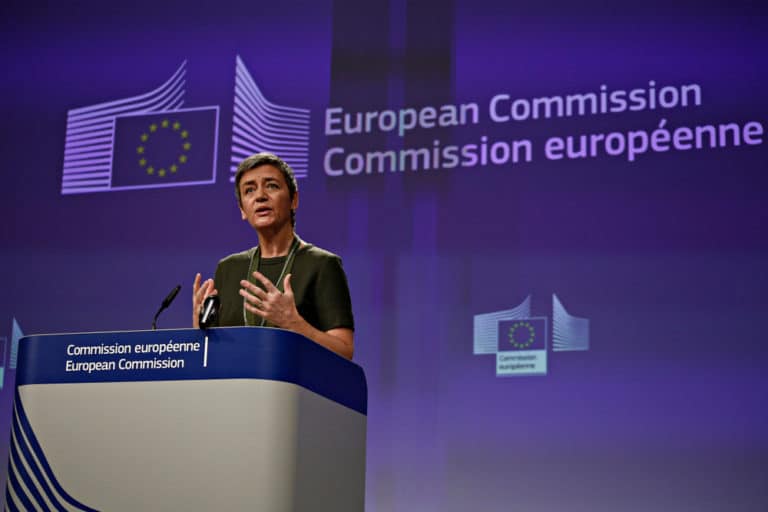All member states need to implement measures against ‘high-risk’ vendors, the Commission says.
This week, the European Commission urged EU member countries to reduce the risks associated with Chinese telecoms equipment in 5G networks, according to a report in POLITICO.
Margarethe Vestager, the Commission’s Executive Vice President, referenced the need to bolster cybersecurity within the bloc. Her comments were delivered in a press conference on Thursday.
As she introduced the ‘European Security and Defence package‘, Vestager stressed the need to be on guard against cyberthreats. Declaring that “there is no European defence without cyberdefence,” Vestager went on to lament the slow implementation of the EU’s rules on cybersecurity.
“So today, almost three years after we adopted the 5G toolbox, we are urging those Member States that have not yet imposed restrictions on high-risk suppliers to do so without delay. Time lost can increase the vulnerabilities in our networks, and determined action is needed”, she said.
Germany is in the cross-hairs
The EU toolbox for 5G security is “a set of robust and comprehensive measures” for an EU-coordinated approach to secure 5G networks. The Commission called on Member States to complete the implementation of the main toolbox measures by June 2021. One of the key measures of the policy directed states to “assess the risk profile of suppliers; apply relevant restrictions for suppliers considered as high risk, including necessary exclusions for key assets.”
Vestager was asked whether Germany is of particular concern, given that German operators like Deutsche Telekom and Vodafone rely heavily on equipment from Chinese giant Huawei. “It is not only Germany, but it is also Germany”, Vestager said.
Last year Germany passed a law allowing government ministries to intervene in telco contracts with Huawei. However, the law affords the government some discretion when it comes to enforcement. The new government of Chancellor Olaf Scholz was expected to take a tougher stance on China but so far hasn’t intervened much in telcos’ reliance on Huawei. Scholz’s charm offensive in Beijing could be keeping him from playing hardball with the Chinese telecom giant.
